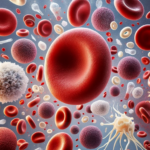According to a story from Technology Networks Cancer Research, a research team affiliated with the University of South Australia and Flinders University may have uncovered a new approach for treating aggressive cases of prostate cancer.
Their study explores a novel treatment designated CDKI-73 and its effects on prostate cancer that is resistant to current approaches. The drug is classified as a Cyclin-Dependent Kinase 9 (CDK9) inhibitor. Prior research has found that this protein can contribute to the survival and growth of cancer that originates in the prostate.
The study tested the drug with a variety of models of prostate cancer, such as tumor samples from patients. They learned that CDKI-73 was able to block the growth of prostate cancer cells, including some of the most aggressive variants that resist treatment. The team found that it was able to do so without damaging normal cells. The drug can be administered orally as well, making administration simple.
CDKI-73 is currently in the midst of a Phase II clinical trial as a therapy for acute myeloid leukemia that is relapse and/or treatment-resistant. However, this research indicates it could be effective for solid tumors as well.
Check out the full text of the study in the British Journal of Cancer.
About Prostate Cancer
Prostate cancer occurs in the prostate gland, part of the male reproductive system that is positioned beneath the bladder. Risk factors for prostate cancer include old age, a family history of the disease, and being of African ancestry. Tumors can appear on the prostate as cells accumulate DNA mutations, but most do not become cancerous. In early stages, prostate cancer doesn’t cause symptoms, but as the disease progresses, difficulty urinating, erectile dysfunction, and bloody urine or semen can appear. Fatigue, bone or back pain, or unexpected weight loss are signs of metastatic disease. Treatment for prostate cancer can vary widely depending on risk and severity of the individual case. Options can include surgical removal of the prostate, hormone therapy, or radiation therapy. Chemotherapy is often used when the disease has spread. Due to screening programs, prostate cancer is often detected at an early stage, and in these cases, patients can have relatively long survival times after diagnosis. To learn more about prostate cancer, click here.
Editor’s Note: Get Involved
Cancer doesn’t discriminate. WHATNEXT and its partners are interested in amplifying the voices of those from all identities and backgrounds. If you have a cancer journey to share, reach out here to learn more about how your voice can help spread awareness and inspire individuals from all walks of life.
metastatic castration-resistant prostate cancer prostate cancer research treatment
Last modified: September 13, 2024











